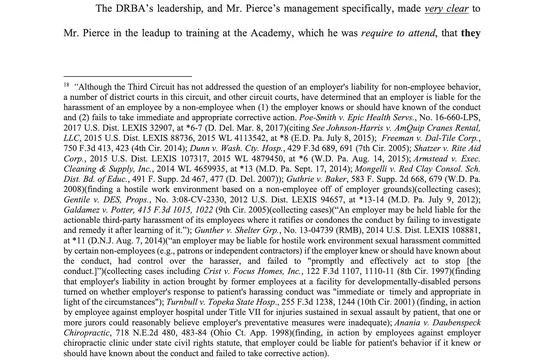
It's relatively uncommon to see IP cases involving pro se litigants, given that corporations cannot appear pro se—but it does happen, such as when an inventor ends up being a party in a patent case.
If you find yourself as an attorney in a case involving a pro se party, it's worth remembering that a number of the District of Delaware rules include specific provisions for cases involving pro se litigants. Here are some examples.
Rule 5.2: Service
The first one is easy. Local Rule 5.2 says that, in cases involving parties that are not participants in the Court's electronic filing system (including pro se parties), you must file a certificate of service. This is not a big administrative burden but it's worth noting.
So, unlike in other cases, if there is a pro se litigant you actually should include a certificate of service with your filed documents.
Rule 5.4: Discovery Materials
Local Rule 5.4 says that, in cases involving pro se litigants, parties are required to file their discovery requests and responses on the docket:
In cases involving pro se parties, all requests for discovery under Fed. R. Civ. P. 26, 30, 31, 33 through 36, and answers and responses thereto, shall be served upon other counsel or parties and filed with the Court.
I'm not sure parties always follow this one to the letter, but the text of the rule is clear.
Rule 7.1.1: Meet-and-Confer Requirement
Local Rule 7.1.1 sets forth a meet-and-confer requirement for all non-dispositive motions. But it explicitly says that it doesn't apply in pro se actions:
Except for civil cases involving pro se parties or motions brought by nonparties, every nondispositive motion shall be accompanied by an averment of counsel for the moving party that a reasonable effort has been made to reach agreement with the opposing party on the matters set forth in the motion. Unless otherwise ordered, failure to so aver may result in dismissal of the motion. For purposes of this Rule, “a reasonable effort” must include oral communication that involves Delaware counsel for any moving party and Delaware counsel for any opposing party.
Does that mean you never have to meet-and-confer in cases involving a pro se party? No, it doesn't. Multiple other rules impose their own freestanding meet-and-confer requirements.
FRCP 26(c), for example, requires a meet-and-confer before moving for a protective order:
A party or any person from whom discovery is sought may move for a protective order . . . . The motion must include a certification that the movant has in good faith conferred or attempted to confer with other affected parties in an effort to resolve the dispute without court action.
FRCP 37 likewise requires a meet-and-confer before a motion to compel:
On notice to other parties and all affected persons, a party may move for an order compelling disclosure or discovery. The motion must include a certification that the movant has in good faith conferred or attempted to confer with the person or party failing to make disclosure or discovery in an effort to obtain it without court action.
There are others as well, such as FRCP 30(b)(6) (requiring a meet-and-confer regarding deposition topics for a corporate deposition), FRCP 37(d) (motion for sanctions), LR 16.1 (prior to scheduling conference), LR 16.3 (prior to pretrial order), and LR 51.1 (regarding jury instructions—maybe).
In short, if your case involves a pro se litigant, be sure to check the rules. It may not be as straightforward as it seems.
If you enjoyed this post, consider subscribing to receive free e-mail updates about new posts.



